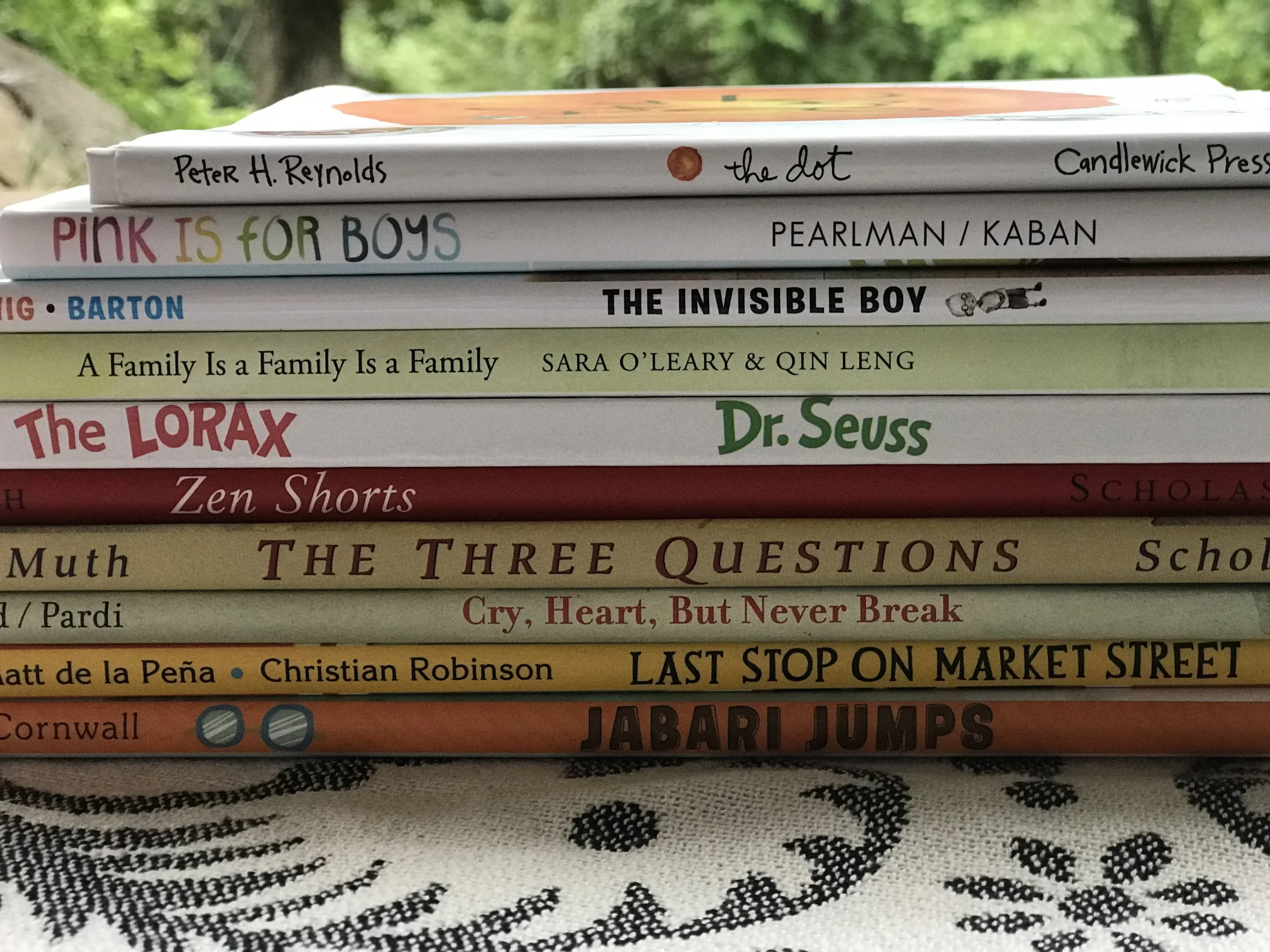Should You Let Your Child Win in Games of Skill?
Games are supposed to be fun. At the end of the day, isn’t that really what it’s all about? It’s fun to be challenged, it’s fun to be with friends and family, and it’s fun to use our imaginations and role play. And, of course, winning can be a big part of the fun too. But sometimes we take it too far and we make our joy completely dependent upon winning. Kids are particularly vulnerable to this troublesome philosophy on winning and losing. That is, unless we as parents step in and deliberately teach our kids that the fun is supposed to be found in the experience itself.
But, on the other hand, everyone can admit that it’s not much fun to lose all the time. Have you ever had a despondent child state that they don’t want to play a game anymore because they never win - because they honestly feel like they can’t win? That’s a really sad state of affairs, isn’t it? Trying to explain that the fun comes from the experience itself is good in theory, but sometimes it’s really hard to have fun if you go in actually knowing you can’t win. When self-confidence is on the line, you need to tread carefully.
Here’s the deal: I do not let my son beat me at chess. And I’ve thought about that a lot. The level of skill is incredibly lopsided when we play by the rules, and frankly it’s not a fair battle. That’s why my son and I often play a serious game of chess followed by a silly game of chess.
What’s interesting is that often the silly rules make it impossible for me to win. Not surprisingly, it’s not much fun for me if the new rule is that all of my son’s pieces are invincible. But perhaps that’s what it feels like to him when we play by the real rules.
So does that mean I should be losing games on purpose? It’s a common question, and a tough one. I’ve even randomly brought it up in conversations with other fathers to see what they think. For your consideration, here are the actual thoughts of three of them sitting around the same table when I asked if they ever “throw” games with their kids:
Father #1: “Of course you let your kids win. What are you, a monster?
Father #2: “Never throw the game. When they finally beat you it will mean so much more to them.”
Father #3: “My wife beats our son in chess every time and I let him win sometimes. He knows I’m not as good as her so it’s not suspicious. It’s a good balance.
Father #1: “Wait, we’re talking about chess? No you shouldn’t let them win at chess.”
Why did Father #1 backpedal from his first answer so quickly when he realized we were talking about chess? Why should that make such a dramatic difference in his opinion? I suppose it’s because he realized we were talking about a game with absolutely zero luck involved.
The Case for Always Doing Your Best in Games of Skill
For the record, my personal opinion on this matter lines up very closely with Father #2. I once heard an interview where a man described how his father beat him repeatedly in chess. Then they made a bet. “What do you want if you win?” the father asked. There was a very fancy restaurant in town that the boy always wanted to eat at and he said he wanted to go there if he won.
He continued to lose every single game they played for many more years until one day he finally caught his father with a checkmate. The boy got up and got his coat and his father asked where he was going. He was getting ready to go to the restaurant. His father had long since forgotten about the bet, but, according to the man being interviewed, he thought about the bet every single time he sat down to play his father, and it was one of the best days of his life.
So the question remains: In a game of pure skill, should you ever lose on purpose? There are still some who say yes, but most often you might hear them say “sometimes”. There are certainly possible benefits. It might help build up self-confidence in your child, and it could certainly bring some momentary joy. But even if your intentions are entirely altruistic, it is important to think of the possible negative side-effects.
The Negative Effects of Losing on Purpose to Your Children
There are definitely issues with “throwing” games. First of all, it’s dishonest. It’s basically a white lie. Part of good sportsmanship is doing your best in an honest competition. A child might end up learning the wrong lessons. My 5-year-old is also a very wise little man. If I lost on purpose he would certainly be suspicious. And if he knew that I was losing on purpose I suspect his feelings would be hurt by it. If the goal behind losing on purpose was to build his confidence, it could easily turn out to be very counterproductive.
And what about that self-confidence that you’re trying to give your kids by losing to them? Well that could end up being an issue too. It might end up being false confidence - they might think they’re supposed to win. It could give them an overinflated sense of their own abilities that leaves them too thin-skinned for losing in true competitions in the future.
The good news is that my son does beat me at plenty of things. He recently destroyed me in Kingdomino, and I legitimately did not see it coming. Of course he also wins his fair share of games of chance. And oftentimes we play cooperative games together as a family and experience winning and losing as a team. But he’s still sometimes hesitant to play by the real rules in chess, and, honestly, it’s for good reason. It just isn’t fair yet. So in an attempt to keep his confidence high and his perspective properly optimistic, I have a few simple things I try to do consistently.
How to Approach Competitive Games of Skill With Children
1) Stress the enjoyment of playing the game itself - not of winning. Games exist for us to have fun. The fun should absolutely be found in the gameplay. If everybody isn’t having fun at playtime, you’re doing something wrong. I highly recommend alternating between different styles of games. Cooperative games are fantastic for stressing the importance of the experience, and for de-emphasizing the effect that winning and losing has on our fun. For competitive games, it’s nice to experience games with varying levels of chance and skill to level the playing field. Making up our own crazy rules of chess is another good example of mixing it up.
2) Celebrate clever ideas and small victories in the middle of the game. If they perform a new skill they learned or demonstrate any signs of cleverness, logic, and improvement - celebrate it! Again, the point is that success and pride shouldn’t be dependent on the end result.
3) Modify! Whatever the game is, create situations within the game that have a more level playing field. In chess this could be mini-games, like a pawn game where you only play with your pawns. It could be material odds where the adult plays without a rook or a queen. Or it could be time odds where you give the child more time on their clock than the adult. Use your imagination. I don’t believe in throwing the game, but there’s absolutely nothing wrong with changing the game. It’s more fun for everybody if it’s a more level playing field. And if you’re looking for some more chess-specific ideas, make sure to explore our article on ways to play chess with kids when you’re much better.
4) Explain the concept of a growth mindset. You aren’t born with or without the ability to win this game. Every single loss is merely a lesson that can help us grow and improve and think of even more clever ideas if we have the right mindset. Do not compare yourself to somebody who has been studying for years, compare yourself to yourself from last week. Of course everyone also really needs to get comfortable with losing games of skill. It’s how we learn. Unless you’re the world champion, there will always be people better than you, and losing with grace is an important skill. Read this article on Little Meeples for a wonderful reflection on children winning and losing gracefully.
5) Expose them to players of similar level! This is a big one. Honestly explain that games of skill will very often be won by the person who has put in the most work and has the most experience. Even if we don’t want to stress the importance of winning, feeling successful is important. Playing against their peers will allow them to experience success and prove that they are learning and growing. And they will beat Dad one day.
6) Give your kids a choice. I really like this concept. Kristin Mae wrote an article for Scary Mommy in which she described how her despondent 8-year-old asked her to take it easy on him in chess. She lovingly explained to him that if she isn’t playing to her full ability, he might feel like the game was handed to him. She then asked him how he imagines he would feel if he finally beat her while she was playing to her full ability - even if it took a year. Finally, she gave him a choice. She did not want to lie, which is the part I really like. Does he want her to take it easy, or to play full out? His choice.
What do you think? Do you let your kids win? Yes? No? Sometimes? Tell us how you handle game night with your kids in the comments.










